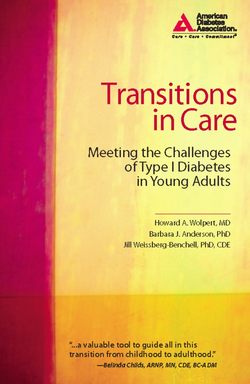Читать книгу Transitions in Care - Howard A. Wolpert - Страница 7
На сайте Литреса книга снята с продажи.
The Challenges of Young Adulthood DEVELOPMENTAL ISSUES IN THE YOUNG ADULT (EMERGING ADULTHOOD)
ОглавлениеOver the past century, traditional developmental psychology theorists such as Erik Erikson (1950, 1968) defined the time immediately after adolescence as the “young adult period.” In contrast, J. J. Arnett (2000, 2004), a leading contemporary developmental theorist, argued that young adulthood does not begin until youths are in their late 20s or 30s and that the developmental stage between approximately 18 and 25 years defines a period called “emerging adulthood.” Recent cultural trends in America for young people in their 20s lead them to delay assuming adult roles with respect to marriage, parenting, and work. Arnett suggests that today’s young people should:
“…explore the possibilities available to them in love and work, and move gradually toward making enduring choices…. This period is a time of high hopes and big dreams. However, it is also a time of anxiety and uncertainty, because the lives of young people are so unsettled, and many of them have no idea where their explorations will lead. They struggle with uncertainty even as they revel in being freer than they ever were in childhood or ever will be once they take on the full weight of adult responsibilities. To be a young American today is to experience both excitement and uncertainty, wide-open possibility and confusion, new freedoms, and new fears.” (Arnett 2004)
Furthermore, in contrast to the views of traditional developmental psychology, more recent developmental theorists subdivide the young adult or post-adolescent period into two phases: an early phase corresponding to the years after high school (∼18–22 years of age) and a later phase when more traditional adult roles are assumed (∼23–30 years of age). This age division is somewhat arbitrary and may not apply to all individuals, and not all individuals or cultures progress through the young adult period according to these two phases. However, thinking about young adulthood as consisting of two phases provides a valuable framework when considering diabetes management and may help to ensure that the clinician’s approach and focus is appropriately matched to the young adult’s life circumstances and readiness to become an active participant in his or her own diabetes management.
